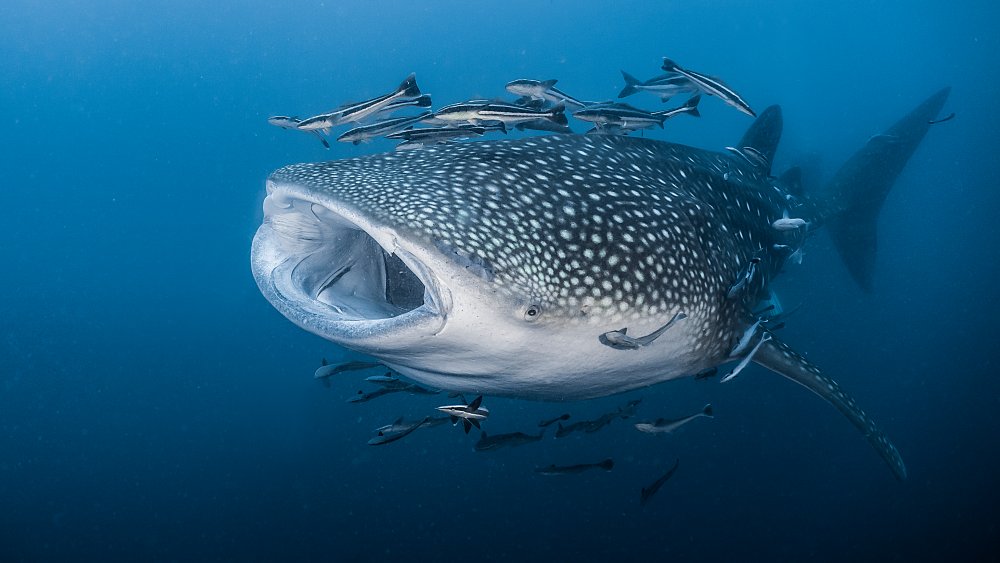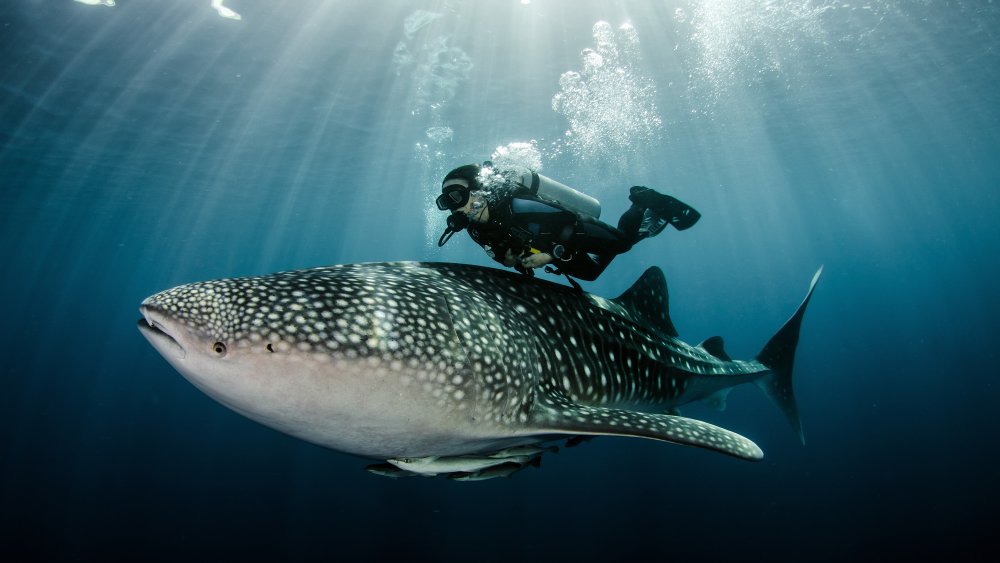The Real Reason Whale Sharks Are Endangered
You wouldn't think the biggest kid on the playground is the one who'd get picked on. You wouldn't think the country with the largest standing army would be the one that got invaded. However, the largest present land animal, the African elephant, while no longer endangered, is still listed as vulnerable. So maybe the analogy doesn't hold up.
With that in mind, it's a little more understandable that planet Earth's largest fish, the whale shark, made the endangered species list back in 2016. National Geographic tells us there are several factors having an impact on whale shark populations, not all of them related to hunting.
Of course, it's probably no surprise that the closer they live to human populations, the lower their chances are of living long enough to collect whatever passes for Social Security in the ocean. The fish are vulnerable to collisions with boats — they're generally considered less-than-swift swimmers — and get tangled up in other fishing equipment not, perhaps, intended specifically to catch them.
Whale sharks are prized by fishermen
Though carnivorous, whale sharks pose no threats to human beings. They're filter feeders — like some whales of the mammal variety — swimming along with their mouths open, scooping up plankton and very small fishy members of the neighborhood. They're often described as docile, and some will allow a human swimmer to hold on for a brief ride.
Whale sharks prefer tropical waters, but sadly, they're particularly desirable in parts of Asia and in Oman. They can grow up to about 40 feet long, which is about the size of a standard-issue school bus. Slow, docile, meaty ... kind of reminds you of the now-extinct dodo bird, doesn't it? So it makes some sense that they're wanted by fishermen. "Honey, I only caught one, but golly! What a fish!" Their meat is highly valued, especially their fins. And according to traditional Asian beliefs, other parts of the whale shark are said to have medicinal applications.
Conservation efforts are underway, however. There's even a program in Singapore that lets school children "adopt" a whale shark. It's not Free Willy, but it's a start.

